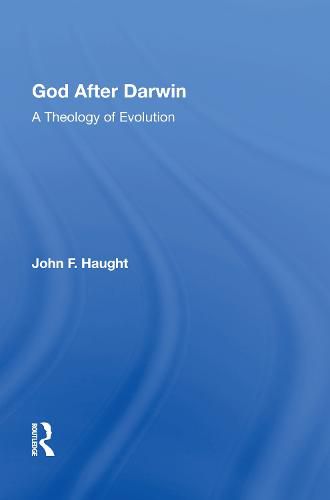Readings Newsletter
Become a Readings Member to make your shopping experience even easier.
Sign in or sign up for free!
You’re not far away from qualifying for FREE standard shipping within Australia
You’ve qualified for FREE standard shipping within Australia
The cart is loading…






Argues that both evolutionism and creationism rely too heavily on notions of underlying order and design. Instead of focusing on the idea of novelty in human experience novelty as a necessary component of evolution, and as the essence of divine Mystery.. In God After Darwin , John Haught argues that the ongoing debate between Darwinian evolutionists and Christian apologists is fundamentally misdirected: both sides persist in focusing upon an explanation of underlying design and order in the universe. Haught suggests that what is lacking in both of these competing ideologies is the notion of novelty, a necessary component of evolution and the essence of the unfolding of divine Mystery. He argues that Darwin’s disturbing picture of life, instead of being hostile to religion - as scientific skeptics and many believers have thought it to be - actually provides a most fertile setting for mature reflection on the idea of God. Solidly grounded in scholarship, Haught’s explanation of the relationship between theology and evolution is both accessible and engaging.
$9.00 standard shipping within Australia
FREE standard shipping within Australia for orders over $100.00
Express & International shipping calculated at checkout
Argues that both evolutionism and creationism rely too heavily on notions of underlying order and design. Instead of focusing on the idea of novelty in human experience novelty as a necessary component of evolution, and as the essence of divine Mystery.. In God After Darwin , John Haught argues that the ongoing debate between Darwinian evolutionists and Christian apologists is fundamentally misdirected: both sides persist in focusing upon an explanation of underlying design and order in the universe. Haught suggests that what is lacking in both of these competing ideologies is the notion of novelty, a necessary component of evolution and the essence of the unfolding of divine Mystery. He argues that Darwin’s disturbing picture of life, instead of being hostile to religion - as scientific skeptics and many believers have thought it to be - actually provides a most fertile setting for mature reflection on the idea of God. Solidly grounded in scholarship, Haught’s explanation of the relationship between theology and evolution is both accessible and engaging.